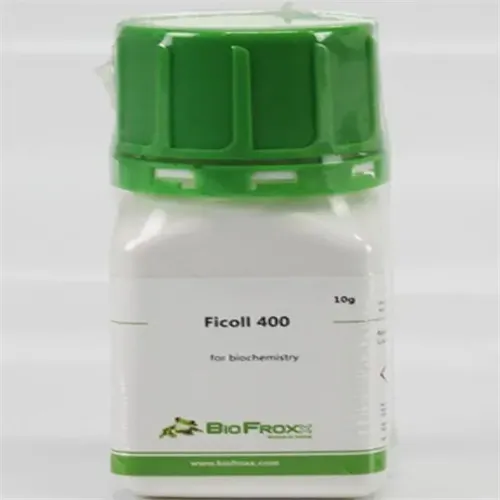Warning: Undefined array key "title" in /home/www/wwwroot/HTML/www.exportstart.com/wp-content/themes/1198/header.php on line 6
Warning: Undefined array key "file" in /home/www/wwwroot/HTML/www.exportstart.com/wp-content/themes/1198/header.php on line 7
Warning: Undefined array key "title" in /home/www/wwwroot/HTML/www.exportstart.com/wp-content/themes/1198/header.php on line 7
Warning: Undefined array key "title" in /home/www/wwwroot/HTML/www.exportstart.com/wp-content/themes/1198/header.php on line 7
- Afrikaans
- Albanian
- Amharic
- Arabic
- Armenian
- Azerbaijani
- Basque
- Belarusian
- Bengali
- Bosnian
- Bulgarian
- Catalan
- Cebuano
- China
- China (Taiwan)
- Corsican
- Croatian
- Czech
- Danish
- Dutch
- English
- Esperanto
- Estonian
- Finnish
- French
- Frisian
- Galician
- Georgian
- German
- Greek
- Gujarati
- Haitian Creole
- hausa
- hawaiian
- Hebrew
- Hindi
- Miao
- Hungarian
- Icelandic
- igbo
- Indonesian
- irish
- Italian
- Japanese
- Javanese
- Kannada
- kazakh
- Khmer
- Rwandese
- Korean
- Kurdish
- Kyrgyz
- Lao
- Latin
- Latvian
- Lithuanian
- Luxembourgish
- Macedonian
- Malgashi
- Malay
- Malayalam
- Maltese
- Maori
- Marathi
- Mongolian
- Myanmar
- Nepali
- Norwegian
- Norwegian
- Occitan
- Pashto
- Persian
- Polish
- Portuguese
- Punjabi
- Romanian
- Russian
- Samoan
- Scottish Gaelic
- Serbian
- Sesotho
- Shona
- Sindhi
- Sinhala
- Slovak
- Slovenian
- Somali
- Spanish
- Sundanese
- Swahili
- Swedish
- Tagalog
- Tajik
- Tamil
- Tatar
- Telugu
- Thai
- Turkish
- Turkmen
- Ukrainian
- Urdu
- Uighur
- Uzbek
- Vietnamese
- Welsh
- Bantu
- Yiddish
- Yoruba
- Zulu
Dec . 10, 2024 19:25 Back to list
Comparing the Safety and Uses of Aspartame and Sucralose in Food Products
The Sweet Debate Aspartame and Sucralose
In the landscape of artificial sweeteners, aspartame and sucralose stand out as two of the most widely used sugar substitutes. With an increasing awareness of health and wellness, many consumers are turning to these low-calorie alternatives to manage their sugar intake. However, the debate around their safety, effectiveness, and long-term impacts on health continues to ignite passion among scientists, dieters, and the general populace.
What Are Aspartame and Sucralose?
Aspartame is an artificial sweetener that is approximately 200 times sweeter than sucrose (table sugar). It is composed of two amino acids, aspartic acid and phenylalanine, and is commonly found in diet sodas, sugar-free gum, desserts, and low-calorie food products. The sweetness of aspartame makes it a popular choice for those seeking to reduce calorie intake without sacrificing taste.
Sucralose, on the other hand, is about 600 times sweeter than sugar and is derived from sucrose through a process that involves chlorination. It is heat-stable, making it suitable for cooking and baking, and can be found in a variety of products, including sugar-free drinks, baked goods, and even in some savory foods. Sucralose is marketed under the brand name Splenda.
Safety and Regulatory Approval
Both sweeteners have undergone extensive safety evaluations. The U.S. Food and Drug Administration (FDA) approved aspartame in 1981, stating that it is safe for human consumption within acceptable daily intake levels. Similarly, sucralose received FDA approval in 1998. Both of these sweeteners are monitored by various health organizations worldwide, including the European Food Safety Authority (EFSA) and the World Health Organization (WHO).
Despite their endorsement by health authorities, aspartame in particular has attracted controversy. Some individuals, especially those with the genetic disorder phenylketonuria (PKU), cannot metabolize phenylalanine, necessitating strict dietary restrictions against aspartame. Additionally, anecdotal reports have linked aspartame to a range of adverse effects, including headaches and allergic reactions, although scientific studies have largely failed to support these claims.
aspartame and sucralose

Sucralose, while generally considered more palatable for cooking, has also faced scrutiny. Some studies have raised questions about its impact on gut health, with findings suggesting that sucralose may alter the microbiome and suppress beneficial gut bacteria. While these findings are preliminary and often criticized for their methodology, they highlight ongoing concerns regarding the long-term effects of artificial sweeteners.
Nutritional Considerations
Both aspartame and sucralose offer a zero-calorie solution for sugar reduction, making them attractive for weight management and diabetes control. They provide sweetness without the glycemic impact associated with sugar, allowing individuals to enjoy sweet flavors without spiking blood sugar levels.
However, critics argue that relying on sweeteners like aspartame and sucralose may not promote sustainable eating habits. Some nutritional experts advocate for a more holistic approach to diet, emphasizing whole, unprocessed foods and natural sweeteners like honey or maple syrup in moderation. This view is rooted in the idea that artificial sweeteners may perpetuate a preference for sweet flavors, potentially leading to greater cravings for sugar and hindering long-term health goals.
Conclusion
The debate surrounding aspartame and sucralose is multifaceted, encompassing scientific, nutritional, and personal perspectives. While both sweeteners have gained widespread acceptance and approval, ongoing research and consumer caution continue to shape public perception. As we strive for healthier lifestyles, it is essential to approach these additives with knowledge and awareness, considering both the benefits and potential risks associated with their use.
Ultimately, whether to embrace artificial sweeteners or explore alternative approaches to sweetness remains a personal choice shaped by individual health goals, preferences, and values. As science evolves, so too will our understanding of these popular sweeteners, underscoring the importance of staying informed and making food choices that align with our well-being.
Latest news
-
Certifications for Vegetarian and Xanthan Gum Vegetarian
NewsJun.17,2025
-
Sustainability Trends Reshaping the SLES N70 Market
NewsJun.17,2025
-
Propylene Glycol Use in Vaccines: Balancing Function and Perception
NewsJun.17,2025
-
Petroleum Jelly in Skincare: Balancing Benefits and Backlash
NewsJun.17,2025
-
Energy Price Volatility and Ripple Effect on Caprolactam Markets
NewsJun.17,2025
-
Spectroscopic Techniques for Adipic Acid Molecular Weight
NewsJun.17,2025

